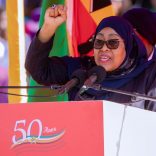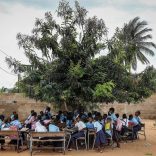Samia assures Mozambique of Tanzania’s commitment to strengthening bilateral ties
Water and sanitation: WaterAid presents seminar for parliamentarians

FILE PHOTO - For illustration purposes only
Members of the Assembly of the Republic (AR), the Mozambican parliament, must acquire knowledge appropriate to approving and monitoring laws concerning water, sanitation and hygiene in the country.
Such was the challenge launched by the director of WaterAid in Mozambique, Adam Garley, at the opening on Saturday (11-03) of a two-day seminar for AR deputies on water, sanitation and hygiene, in Macaneta, Maputo province.
Garley outlined the interconnection of water, sanitation and hygiene in the plans of the public works, education, health and rural development and environmental sectors, saying they must be a priority in the interventions of the government and its partners.
The AR, the government and partners were aware of the shortcomings in water supply systems in schools, health facilities, markets, as a direct result of the imposition of restrictive measures aimed at halting the spread of Covid-19, he observed.
“Before Covid-19, we had no real notion of what was happening about water, sanitation and hygiene in schools, for example,” he said, adding that actual conditions had put at risk the health, especially, of girls needing to respond to the demands of their menstrual cycles.
Garley therefore urged the allocation, via the state budget, of human and financial resources exclusively for water and sanitation planning.
‘It is in this context that WaterAid reaffirms its availability to continue supporting members of the Assembly of the Republic in acquiring the knowledge necessary for passing and overseeing legislation pertaining to the water, sanitation and and hygiene needs of the entire population,” he said.
In turn, the President Committee on Constitutional Affairs, Human Rights Legality (CACDHL), António Boene, recommended the urgent rehabilitation of water and sanitation infrastructure, within the framework of sustainable urban planning.
If this was not achieved, he warned, serious environmental problems would emerge, because cities and villages of colonial heritage could no longer support current population densities.
This is the first time that members of the CACDHL have received technical training in water, sanitation and hygiene matters since Mozambique’s ninth parliament took up its role in 2020.












Leave a Reply
Be the First to Comment!
You must be logged in to post a comment.
You must be logged in to post a comment.